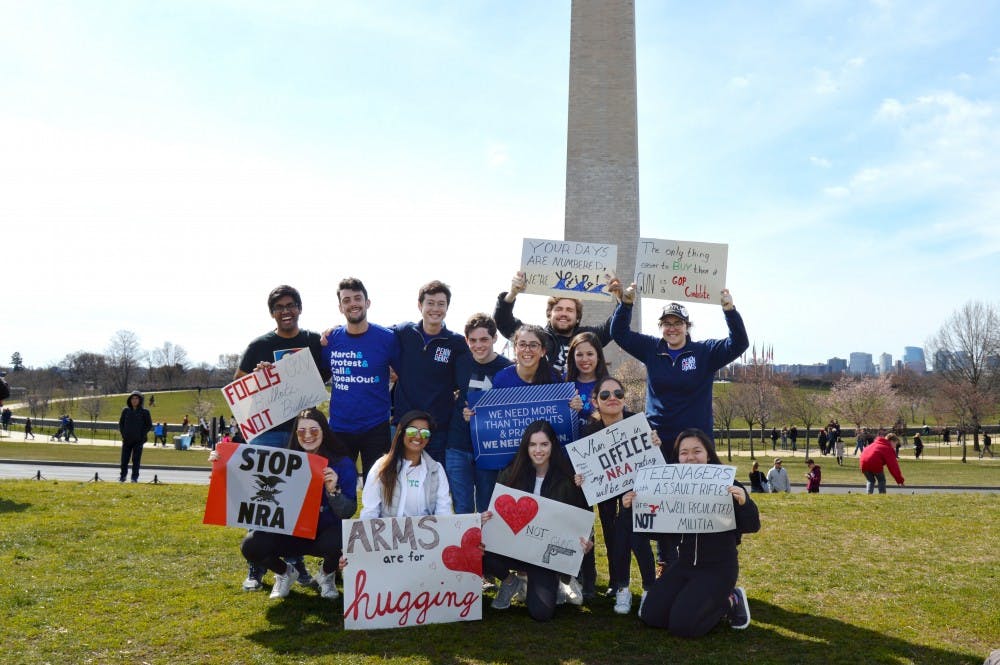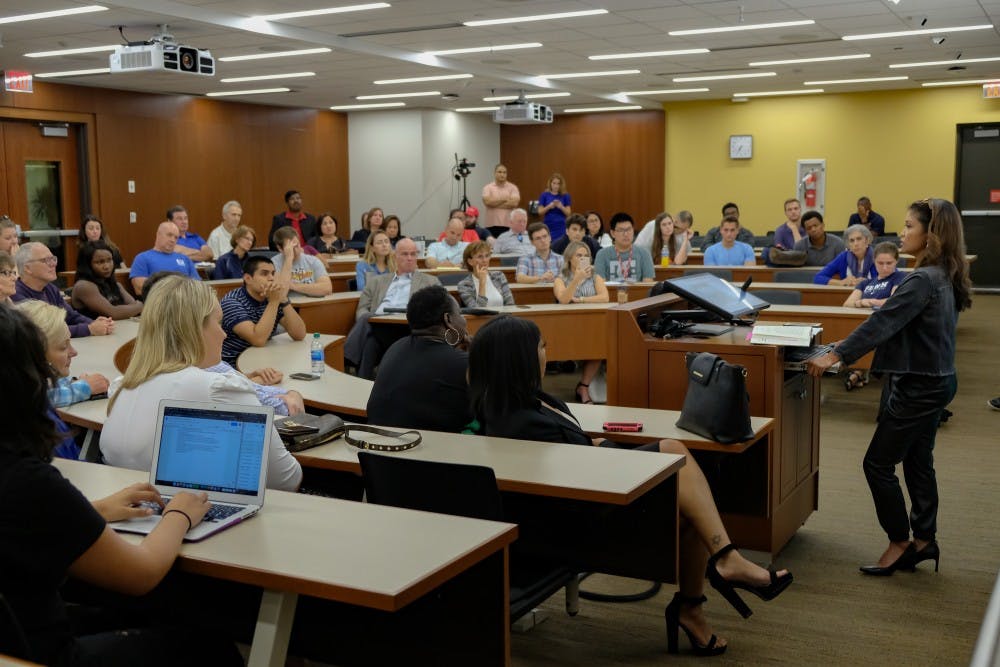
Ahead of a presidential election year, some of Penn's political groups are facing a hurdle in hosting events after a key source of funding was cut off.
A one-year grant from the Office of Student Affairs to the Penn Political Coalition is ending next year, which student groups say will lead to a lack of funding available that could make it even more difficult for them to host future events.
The umbrella political organization, commonly referred to as PoCo, helps political groups cover some of the supplementary costs of speaker events. The organization’s membership includes Penn Democrats, College Republicans, and the Government and Politics Association. The fund PoCo uses, known as Synergy, will not receive funding for the 2019-2020 school year, Office of Student Affairs Executive Director Katie Bonner wrote in an email to The Daily Pennsylvanian.
“The OSA provided a one time grant for the Synergy fund last year,” Bonner said. “The OSA has made no commitment to provide funding for the Synergy fund this year (2019-2020) though we are working with the group to identify new funding sources.”
Historically, PoCo has received funding from sources other than the student conduct office. PoCo President and College junior Jaywon Kim said the group had received funding from several on-campus groups prior to its financial assistance from the OSA.
“[PoCo] was actually founded through donations through Fox Leadership and Wharton Public Policy Initiative, the Annenberg School of Communication[s], and eventually the Netter Center,” said Kim. “The donations were meant to help support civic engagement and political discourse on campus.”

When these grants stopped providing money, OSA agreed to fund the group with a one time grant for the 2018-2019 school year, Bonner said. However, Bonner said PoCo's trouble with acquiring funding may hurt student political groups.
“Of course not having money in Synergy impacts PoCo’s ability to administer funds for events hosted by their member organizations,” Bonner said. “We have been partners in trying to identify new resources and provide information for departments and centers who might be a good match.”
Penn Dems leaders say they are concerned the lack of money will harm their efforts to host future events.
Penn Dems Political Director and College Junior Owen Voutsinas-Klose said for as long as he can remember, PoCo provided funding to cover indirect event expenses such as food. However, he said this lack of immediately available money could hurt attendance at future events.
“We received funding from PoCo for almost all of our events,” Voutsinas-Klose said. “Without food, we see that our attendance wanes.”

While PoCo-funded groups use funds to cover indirect expenses, Bonner said it was forbidden for the University to fund direct expenses, such as speaking fees.
“Events which are partisan in nature cannot be funded by University dollars,” she said. “Because of this, political organizations may have a difficult time finding dollars through traditional campus funding sources which are available to other student groups.”
Not every political group will be impacted by this lack of funding. Penn College Republicans Communications Director and Wharton sophomore Corey Paredes said the organization had not historically sought funding from Penn Political Coalition in the past.
“College Republicans is proud to have a strong network of financial supporters who contribute to our programs,” Paredes wrote in an email to the DP. “We anticipate no impact to our organization from POCO’s dissolution.”
For the student groups that are affected, Kim hopes to have a resolution to the issue within the next several months.
“I am hoping [this is resolved] by the end of the semester,” she said. “Obviously a really important election year is coming up.”
The Daily Pennsylvanian is an independent, student-run newspaper. Please consider making a donation to support the coverage that shapes the University. Your generosity ensures a future of strong journalism at Penn.
Donate



